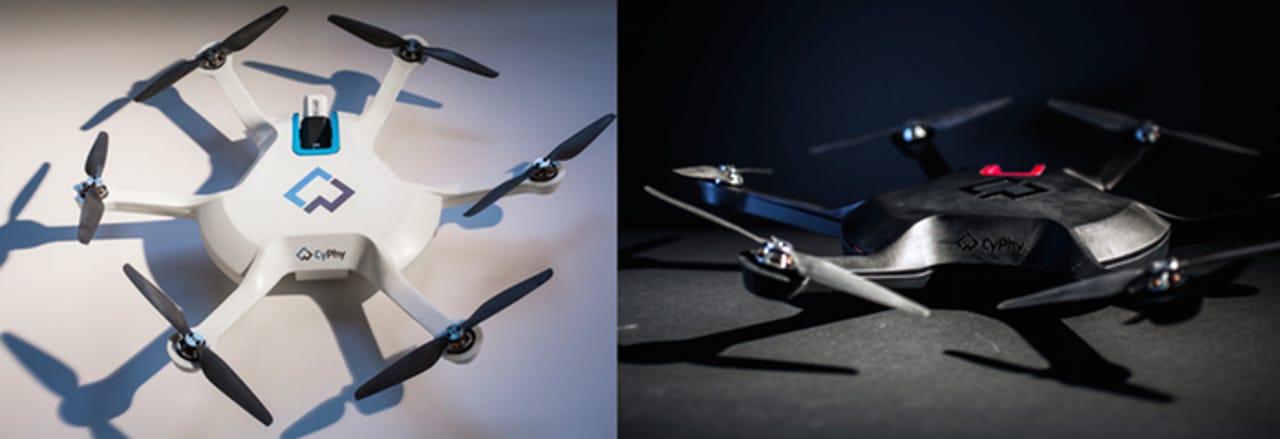iRobot co-founder wants a drone in every home


The LVL 1 Drone is a consumer-friendly, affordable, six rotor UAV that seems primed to lower whatever technical barriers to entry still remain for hobbyist drone use. While DJI, the largest manufacturer of consumer drones, has found huge success with sleek devices targeting a tech-savvy crowd of filmmakers, engineers, and hardcore enthusiasts, its highly capable devices carry steep learning curves, and that's kept them out of the hands of the point-and-shoot crowd. CyPhy Works wants that share of the market, and it claims its new device will make flying as simple as using a robot vacuum, the now-iconic product that turned Greiner's former company into the first big success of the consumer robotics age, with a current market cap approaching $1B.
Taking a populist approach, CyPhy Works, which is a well-established company, has bypassed traditional distribution by launching the LVL 1 via a Kickstarter campaign. The base model starts at $495. With a day to go as of this writing, more than 1200 backers have pledged $825,000, more than three times the campaign's $250,000 goal and proof that there is a ripe market for capable drones with push-button simplicity.The device has six rotors, which give it more stability than the four-rotor models popular with ardent flying enthusiasts. Unlike other rotor drones, which tilt in order to move forward and backwards, the LVL 1 maintains its horizontal orientation while in Level-Up mode, which the company says eliminates the need for a stabilizing gimbol to hold its high resolution camera. Instead of hanging exposed and prone to damage, the camera is fully encased in the drone's body, which CyPhy Works says makes it more durable than competitors' models.
Robotics
"Our drone protects its camera, flies simply, shares intuitively, and captures high-quality footage effortlessly," says Greiner. "Backers will be filming their child's soccer game, shooting stunning vistas, and performing home inspections from day one; we are bringing technology to people where they are in their everyday lives. This product will capture great footage and we hope it also captures people's imagination."
According to CyPhy Works, Greiner and her team were inspired to enter the consumer market when they realized that a flying robot for everyday use, one that relied on a high degree of automation and simplified controls, didn't exist. Their priorities were to make a device that hit the same mass market hotspots that apply to consumer cameras: portability, rugged quality, and ease-of-use. The LVL 1 has no landing gear, making it easy to stow in a backpack, and its high def camera that will be good enough for most home users, even if it may leave avid filmmakers wanting more flexibility. Flight time on a single charge is about 20 minutes, and the drone takes off with a simple swipe of a smart phone, which acts as a remote control.Features like geofencing, which allow a user to pace off a confined area that the drone won't fly out of, are geared toward amateurs and eliminate the risk of the dreaded fly-away. For advanced users, Level-Up can be turned off, which allows operators more control to do flips, dives, and twirls. Like a nice point-and-shoot digital camera, a skilled operator should be able to do wonders with it, but for the average Joe it promises to be a capable new tool that may open up a whole new segment of the red hot drone market.